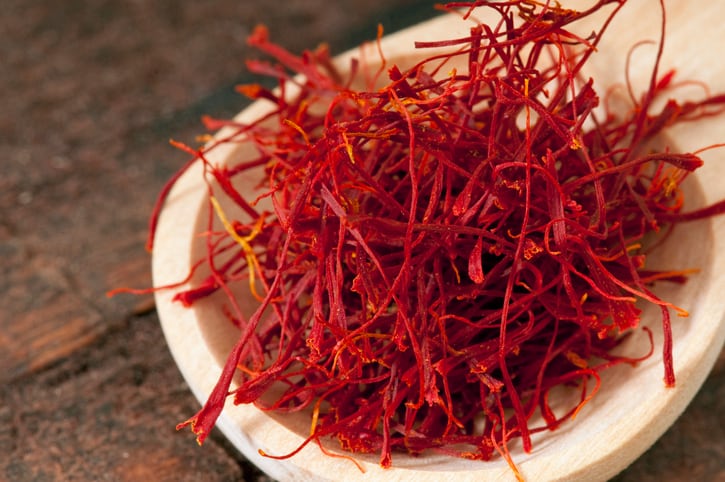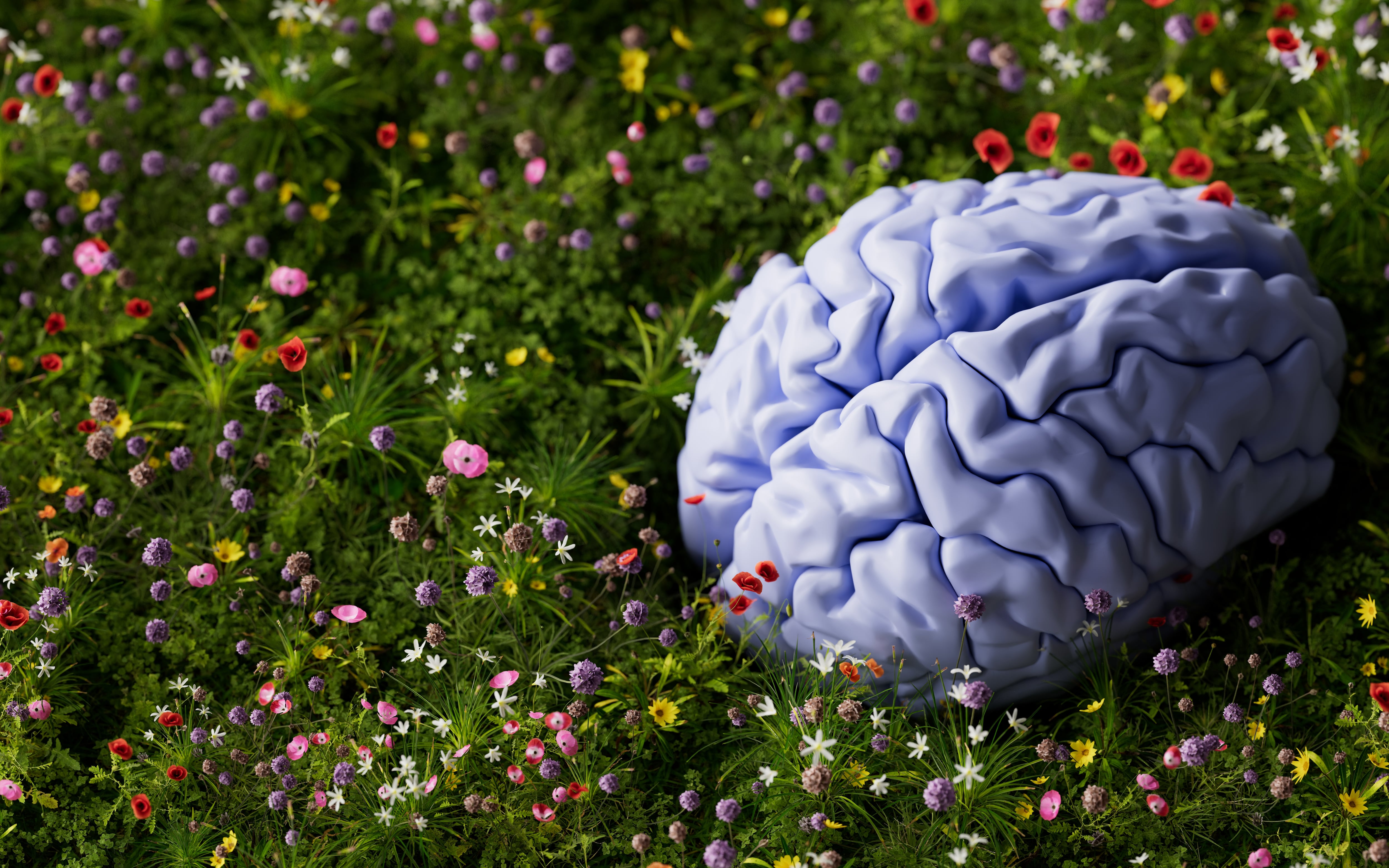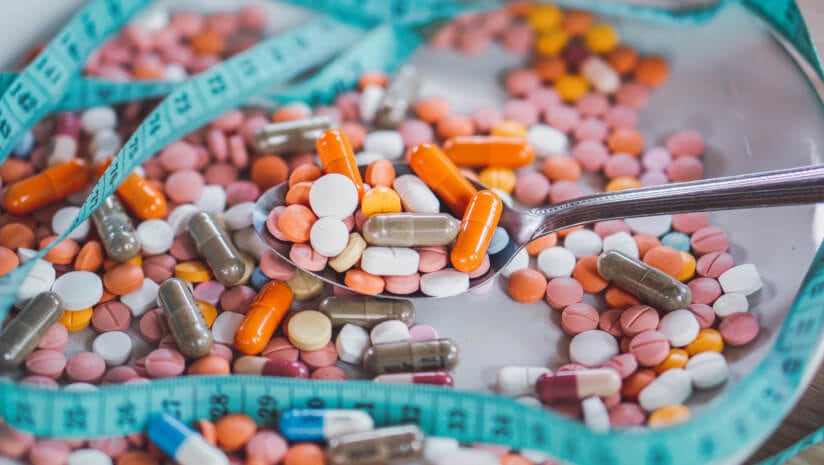Mind health supplements represent one of the fastest-growing segments in the supplement industry. In 2022, the global brain health supplements market was valued at US$ 8.63 billion and is projected to grow at a compound annual growth rate of 13.3% from 2023 to 2030.
Research in this area is also expanding, with both independent and industry-funded researchers investigating the potential effects of ingredients including omega-3 fatty acids, flavanols and vitamins on aspects such stress relief, sleep support, emotional resilience and cognitive function
Below a round-up of some of the latest science exploring how supplements might help sharpen thought processes and lighten the mood.
Breastmilk prebiotic may improve metabolism and boost cognition for older adults
Dietary supplementation with the human milk oligosaccharide (HMO) 2′-fucosyllactose boosted the growth of Bifidobacterium in the guts of older adults and improved a range of metabolic measures, according to a findings reported by Stanford University and Abbott Nutrition.
Data from the Rejuvenating the Aging Microbiota with Prebiotics (RAMP) study found that six weeks of supplementation with five grams per day of 2′-fucosyllactose (2′-FL) improved levels of HDL cholesterol, insulin levels and FGF21, a hormone that plays a crucial role in regulating metabolism, energy expenditure and insulin sensitivity.
Writing in Cell Reports Medicine, the researchers noted that not all of the participants responded to the prebiotic treatment. Interestingly, the Bifidobacterium responders were also found to have improved performance on a cognitive test compared to non-responders, a result the study called “speculative”.
“These results demonstrate a potential impact of 2′-FL supplementation on cognitive function in human adults,” wrote the researchers, led by Stanford’s Dr. Justin Sonnenburg. “Previous work has shown that 2′-FL levels in breast milk are positively associated with cognitive development in human infants, and 2′-FL supplementation influences vagus-nerve-mediated memory adaptations in adult rodents.”
Review supports omega-3 supplementation for cognitive health
A review of the literature on the effects of omega-3 supplementation on cognitive decline revealed modest but consistent improvements in Mini Mental State Examination scores among 26,881 participants aged 40 years or older. The team of Portuguese researchers indicated results “are unlikely to be due to chance alone and represent a genuine therapeutic effect.” They also suggested a threshold effect rather than a dose-response relationship.
“These findings support n3-PUFA supplementation as a complementary approach to lifestyle-based strategies for cognitive health, including diet, physical activity, sleep optimization and cognitive training,” they wrote in the journal Nutrients.
Commenting on the study, Dr. Kaitlin Roke, director of scientific communication and outreach at The Global Organization for EPA and DHA Omega-3s (GOED), told NutraIngredients that most people consume little to no omega-3 EPA and DHA in their diets and that encouraging increased intake through supplementation or diet across life stages could support brain and mental health.
She also noted that the lack of the lack of consistency across studies on omega-3s and brain health compromises the ability to make clear recommendations.
“This review addressed that issue by focusing specifically on the MMSE, enabling direct comparisons across studies,” Dr. Roke said. “Future research could build on this approach by continuing to use standardized assessments, which would improve comparability and strengthen the evidence base.”
‘Longevity vitamin’ ergothioneine could protect the aging brain
A new study from ergothioneine supplier Blue California suggests that supplementation with its ErgoActive ingredient leads to dose-dependent improvements in subjective memory and sleep in healthy older adults.
“This publication reflects years of investment in building the scientific foundation for ergothioneine,” said Dr. Linda May-Zhang, vice president of science & innovation at Blue California and co-author on the study. “These findings offer clinical evidence that ergothioneine supports neurocognitive and physiological resilience in aging humans and provide a strong foundation for future studies in populations with lower ergothioneine status or greater risk for age-related decline.”
Blue California, the first to produce L-ergothioneine via fermentation, launched its ErgoActive ingredient in 2015 as an alternative to chemical synthesis and mushroom extraction and received FDA Generally Recognized as Safe (GRAS) status in 2019.
Could flavanols protect the brain from sitting-induced damage?
Cocoa flavanols improved blood flow to the brain in older adults who sat still for two hours, according to a research team from the University of Birmingham in the UK.
The study, published in the journal Nutrients, noted that adults both young and old often sit for over seven hours a day and that sedentary behavior reduces blood flow to the brain, not only impairing cognitive function but increasing the risk of many chronic conditions.
“Critically, modulation of the brain vasculature can occur within a few hours of sitting uninterruptedly,” they noted. “For example, it has been shown that 1 to 8 h of sitting reduces blood velocity in the middle cerebral artery (MCA) in young and overweight/obese older adults”.
They suggested that flavanols may protect the brain from decreased blood flow by increasing nitric oxide-induced vasodilation but called for further studies that measure the production of nitric oxide to confirm this mechanism.
The flavonol dose used in the study was relatively high (695 mg), a dose that can be achieved by consuming two cups of green, black tea or unprocessed cocoa or a combination of apples, berries and green/black tea.
OmniActive’s low dose ashwagandha effective for stress, sleep and mood benefits
Twelve weeks of supplementation with Zenroot ashwagandha may improve sleep quality and decrease occasional anxiety and mood swings, says a new study from India.
OmniActive Health Technologies launched Zenroot in Europe earlier this year after an initial launch in the U.S. The root-only ashwagandha (Withania somnifera) extract is standardized to 1.5% withanolides, with data from a new randomized, double-blind, placebo-controlled trial showing efficacy at a low dose of 125 mg.
“The results of our study indicate that [Zenroot] at a 125-mg dose reduced the subjective perception of stress and resulted in improvements of its associated impairments in sleep quality, severity of occasional anxiety symptoms and mood state,” wrote scientists from Bengaluru Neuro Center, Santosh Hospital, OmniActive Health Technologies and Invitro Research Solutions Private Limited.
Results of the trial, which are published in Advances in Therapy, come hot on the heels of a bioavailability study published in the same journal. The bioavailability data indicated that a 125 mg dose of the Zenroot led to significantly higher plasma concentrations of total withanolides, the key bioactives in the ayuervedic herb, compared to two “well-established commercial products with established doses [500 mg and 600 mg] based on multiple human clinical studies”.

Vitamin E tocotrienols ‘emerging as promising neuroprotective agents’
Tocotrienols, a form of vitamin E found in tocotrienol-rich fraction (TRF) from palm oil, are emerging as promising neuroprotective agents due to their antioxidant, anti-inflammatory, and immune-enhancing properties.
Despite limited human trials, they show potential in supporting brain health and mitigating neurodegenerative changes associated with aging. Current research highlights the need for further studies, particularly human clinical trials, to fully understand the therapeutic potential and pharmacokinetics of tocotrienols compared to the more widely studied tocopherols.
The study called for future research to explore synergistic effects between tocotrienols and tocopherols and consider population-specific trials.
Kefir-derived probiotic may improve stress response
A study published in Scientific Reports by Yotsuba Milk Products investigated the effects of the kefir-derived probiotic YRC3780 on stress response in Japanese adults.
Over eight weeks, participants consuming YRC3780 showed significant improvements in stress-related scores, notably in tension, depression, anger, confusion and fatigue, compared to a placebo group. Despite these improvements, no significant changes were observed in salivary cortisol levels or fatigue scores. The researchers suggest further investigation into YRC3780’s potential anti-stress and anti-fatigue effects.
Previous studies have suggested that YRC3780 increases natural killer cell activity in mice and alleviates allergic reactions in humans.
“Therefore, YRC3780 may act on immune cells in the intestinal tract to enhance cytokine production, and these cytokines in turn may improve the stress response,” the researchers wrote.
Study supports saffron extract’s mood improvements
A randomized, double-blind, placebo-controlled trial involving 202 adults with subclinical depression demonstrated that a 12-week supplementation with 28 mg per day of saffron extract (Affron) notably improved depressive symptoms and reduced low mood symptoms by 53% compared to 54% in the placebo group.
The study, funded by Pharmactive and published in The Journal of Nutrition, found that while overall sleep quality differences were not significant, those with baseline sleep disturbances saw notable improvements, suggesting saffron’s potential benefits for mood enhancement and sleep issues.

L-theanine may be neuroprotective in sleep deprivation
Research conducted by Anhui University of Chinese Medicine and Anhui Agricultural University indicated that L-theanine, an amino acid from green tea, may offer neuroprotective benefits against sleep deprivation-induced damage by reducing NADPH oxidase 4 (NOX4) and protecting brain mitochondria.
The study focused on ferroptosis, a form of cell death linked to iron-dependent lipid reactive oxygen species, in the hippocampus. The findings showed L-theanine improved learning and memory in sleep-deprived mice, while a selective NOX4 inhibitor, GLX351322, reversed these benefits, highlighting L-theanine’s potential against cognitive deficits related to oxidative stress and suggesting further human studies.
Obesity-related next-gen probiotic candidate may offer mood benefits via gut-brain axis
Researchers from the Catholic University of Louvain and WELBIO in Belgium have found that the Dysosmobacter welbionis J115T, a novel butyrate-producing bacterium isolated from the human gut, may reduce stress responses in female mice fed a high-fat diet.
The study, published in Beneficial Microbes, highlights sex-specific responses, showing that while the probiotic did not significantly affect weight gain or fat mass, it reduced anxiety-like behaviors and increased exploratory activity in these mice.
The potential mechanism involves the gut-brain axis and the production of anti-inflammatory short-chain fatty acids, with an observed increase in brain-derived neurotrophic factor in supplemented mice. The findings suggest that D. welbionis J115T could offer mood benefits and modulate stress-related behaviors without promoting depressive-like behavior.
“While causality cannot be inferred, this alignment raises the possibility that the anxiolytic- and antidepressant-like effects of D. welbionis J115T may, at least in part, be mediated through the upregulation of BDNF in the brain,” the researchers wrote. “Our data do not support a causal role for increased D. welbionis in promoting depressive-like behavior, contradicting what might be inferred from biomarker-based studies. “These data are rather aligned with previously reported antidepressant effects of butyrate producing bacteria.”
Probiotics may support circadian rhythms and mental health symptoms
A study conducted by West Bengal State University and other institutions explored the gut–sleep–brain axis, highlighting how probiotics could support circadian rhythms and mental health.
Findings from the randomized controlled trial indicated that of a total 99 adults, those consuming probiotics showed increased beneficial gut bacteria, improved sleep and reduced depression and anxiety scores over 12 weeks compared to a placebo group. The study emphasized the dual influence of circadian rhythms and gut microbiota on mental health, with microbial metabolites like short-chain fatty acids being key markers. Researchers suggest further exploration of circadian-aligned dietary interventions alongside probiotics.
“Microbial byproducts, such as short-chain fatty acids and tryptophan metabolites, are now seen as key messengers in this gut–sleep–brain dialogue, influencing everything from mood to stress resilience,” they wrote, noting the potential for probiotic applications in the treatment of mental illness. “What is particularly interesting is that this relationship goes both ways: not only does the biological clock influence gut health, but the gut microbiota also appears to impact the body’s internal timing and cognitive functions.”
New study links skin microbiome with mental well-being
A UK-based clinical study published in the British Journal of Dermatology reveals a connection between the skin microbiome and mental well-being. Conducted by Unilever and the University of Liverpool, the research found that higher levels of Cutibacterium on the face and underarm correlate with reduced stress and improved mood.
This pioneering study, involving 53 participants, highlights the skin-brain axis, suggesting that the skin microbiome, like the gut microbiome, may influence mental wellness. Unilever aims to use these findings to develop holistic products enhancing both physical appearance and mental well-being.
While there has been extensive research on the connection between gut microbiome and mental health, this is the first study that focused on the skin microbiome’s role in mental well-being—a concept that is often labeled ‘psychodermatology’ by the beauty industry.
Review backs neuroprotective effects of Bacopa monnieri
Researchers at Poznan University of Medical Sciences in Poland, evaluated the current evidence on the efficacy and safety of Bacopa monnieri, a perennial, creeping herb which grows predominantly in the Southeastern regions of Asia. It has been used traditionally in Ayurveda to improve memory and aid sleep, with a number of clinical trials demonstrating its potential benefits.
Bacopa monnieri contains 52 bioactive compounds including bacosides A and B, polyphenols, flavonoids, terpenoids and proteins. Bacosides, its main active compounds, are thought to be largely responsible for potential effects. Research suggests these active compounds have a wide variety of antioxidant, antibacterial and anti-inflammatory properties. Its antioxidant effects are thought to preserve brain function by neutralizing reactive oxidant species and reducing oxidative stress.
“This wide spectrum of properties makes Bacopa monnieri a compelling subject for further investigation into its systemic health benefits,” the researchers wrote. “[However], there are a number of important limitations that need to be taken into account when interpreting [study] results.”
The review highlighted that differences in extraction methods, the source of the plant material, culture conditions and type of standardized active compounds used affect the reproducibility and comparability of the results. It also underscored the need for more studies to confirm these effects, particularly in neurological diseases, and highlights challenges with bioavailability and standardization of extracts.

B vitamins may improve psychological states through the gut-brain axis
New research from Macau University of Science and Technology in China published in Nutrients suggests that higher levels of vitamin B1 and B2, as well as specific gut microbes, may be associated with improved sleep quality and reduced stress levels.
Though the cross-sectional nature of the study limited the ability to infer causality, the researchers reported that the findings “offer exploratory insights for future research and highlight the need for more in-depth studies to elucidate the complex interactions among micronutrients, the gut microbiota and mental health.”
Vitamins B1 (thiamine) and B2 (riboflavin) may protect the areas of the brain involved in stress, anxiety and sleep regulation by counteracting oxidative stress, enhancing neurotransmitter synthesis and promoting cellular energy metabolism. Gut bacteria can synthesize these two B vitamins, and previous research suggests that they are linked to gut microbial composition and function, which are critical for maintaining intestinal health. The bi-directional communication between the gut and the brain plays a key role in the functions and outcomes in the central nervous system.
“Overall, the microbiota–gut–brain axis affects the host’s cerebral nerves, anxiety, stressful emotions, sleep quality and cognitive impairment through interactions with neuronal, endocrine, immunological and metabolic pathways,” the researchers wrote.
Review supports SAMe for mental health
Dietary supplement S-adenosyl-L-methionine (SAMe) may provide a functional alternative to pharmaceuticals for first line management of depressive symptoms, according to a new science review.
“Mental health conditions are common, with a global burden of one in eight people affected according to the World Health Organization (WHO),” they wrote in the journal Nutrients. “Since the COVID-19 pandemic, the prevalence of depression and anxiety have risen approximately 28% and 26%, respectively.”
They also noted that The State of Mental Health in America 2024 report found that only 36% of youth with at least one major depressive episode said treatment helped “a lot” while 65% said it helped “some”, adding that many therapies may cause adverse effects such as weight gain, nausea/vomiting and sexual dysfunction.




